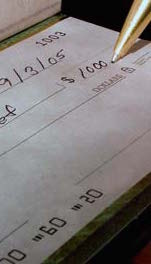Class action lawsuits allow groups of plaintiffs to take legal action against a common defendant. One case with many plaintiffs is brought. Class actions frequently settle out of court, although they can go to trial. Plaintiffs in a class action are compensated based on the terms of the settlement agreement or the damages awarded by a jury. 
Whether you are a named plaintiff in a class action or you simply join as one member of a larger class, it is important to understand how legal fees in a class action work. A defendant in a class action who has been sued also needs to understand how legal fees are paid. A San Diego class action litigation lawyer at Sepahi Law Group, APC can provide you with information about class action costs and fees so you can make informed decisions about how to proceed with your legal issues.
How Do Legal Fees in a Class Action Work?
Defendants sued in a class action pay attorneys to represent them and generally cannot recover litigation costs even if the plaintiffs do not prevail in the class action, although there may be limited exceptions to this rule.
Plaintiffs, on the other hand, do not pay legal fees in a class action unless compensation is obtained by the attorneys representing the class. This means that plaintiffs benefit from being able to file a lawsuit without facing a significant risk of out-of-pocket expenses. Attorneys can also cover many of the costs associated with a class action and are compensated when the case is resolved.
Attorneys in class action lawsuits are typically paid out of the money that is recovered for the plaintiffs in the case. If the class action involved injunctive relief or involved a declaratory judgment rather than monetary compensation, those who hired the attorneys typically will pay the lawyers. Sometimes, the defendant who has been sued in this type of case will pay the legal bills.
When attorneys recover legal fees in a class action, those fees are frequently awarded as a percentage of the total money recovered. For example, an attorney may recover 25 percent of the total amount of money that the defendant paid out to settle the case or that the jury awarded. However, the percentage amount of fees that an attorney receives in a class action can vary depending upon many factors including the complexity of the case and the costs of litigation.
Attorneys fees in a class action are generally subject to court review and approval. This protects plaintiffs and ensures that the costs of litigating a class action case are reasonable.
The system for attorneys fees in class action lawsuits benefits plaintiffs by shifting the risk of loss to an attorney. If plaintiffs had to pay their own legal fees for every class action, regardless of the merits of the lawsuit, many people would be afraid to file a claim out of fear of being left with large lawyer bills.
To learn more about attorney fees in class actions and about other aspects of class action litigation, contact a San Diego class action lawyer at Sepahi Law Group, APC today for help.

